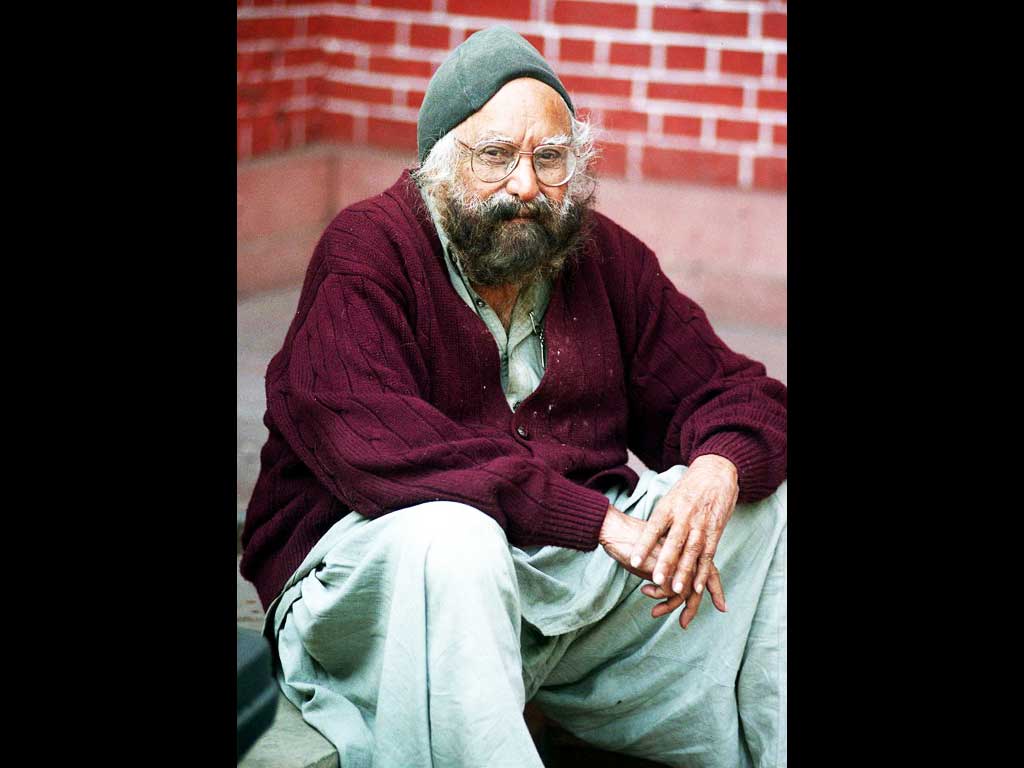
Possibly one of the world’s most prolific writers, with over 80 books under his name, Singh stood unchallenged for decades as India’s most celebrated novelist in the English language. To a considerable extent, he belonged to Pakistan too, born in a Sargodha village in 1915 and educated at Lahore’s Government College. His friendships across the border remained intact till his death. Singh’s first novel, Train to Pakistan, written in 1953, gives a moving, sometimes scathing account of the impact of Partition on villagers — without delving into politics to any great degree. His next novel, in 1959, I Shall Not Hear the Nightingale, touches on conflict caused over the British role in colonial India, as a father and son clash.
Though he touched many intellectual themes and emphasised his essential secularism, Singh will, perhaps, be best remembered as a satirist, lambasting in somewhat ribald terms the society he lived in. His interactions with women were legendary. Often in the midst of controversy, Singh will be known always for his exposure of hypocrisy and sometimes brutal honesty — a trait we do not often see in the culture of our region. Apart from his work as a novelist, he was also a newspaper editor and a columnist, writing on political and non-political figures from both sides of the border.
A winner of one of India’s highest civil awards, the Padma Vibushan, Singh leaves behind a vacuum — but also a body of work that will continue to be read and re-read for a very long time to come. He stood out not only as a writer but also as an individual who said precisely what he believed in.
Published in The Express Tribune, March 22nd, 2014.
Like Opinion & Editorial on Facebook, follow @ETOpEd on Twitter to receive all updates on all our daily pieces.
COMMENTS (9)
Comments are moderated and generally will be posted if they are on-topic and not abusive.
For more information, please see our Comments FAQ


1732266251-0/Josh-Brolin-(1)1732266251-0-165x106.webp)
1732266343-0/BeFunky-collage-(82)1732266343-0-165x106.webp)








I bought one of his joke books from a book fair many years ago. It was one of the funniest things I've ever read. R.I.P Khushwant Singh, you have touched many hearts.
An icon is no more! May Allah bless his soul.
@hoshiar singh gill - England: That was Padma Bhushan he received in 1974(returned in 1984) but he accepted the Padma Vibhushan in 2007.
We were braught up as his stories and poems were there in our school curriculum; He also gave us good reads as I grew up to be an adult. Very few people are capable of that... May their breed Increase. And may he rest in peace,
A great loss!
I must share with others what he said about death "Above all, when the time comes to go, one should go like a man without any regret or grievance against anyone. Iqbal said it beautifully in a couplet in Persian: “You ask me about the signs of a man of faith? When death comes to him, he has a smile on his lips.”
He was one of my favorite authors from the subcontinent. some time back he wrote his won epitaph: “Here lies one who spared neither man nor God Waste not your tears on him, he was a sod Writing nasty things he regarded as great fun Thank the Lord he is dead, this son of a gun.” He wrote great books. He was also an atheist. Like all great men, he was not perfect, but that does not reduce his greatness in my eyes. Good bye. I will miss your blunt way of telling the truth.
R I P. khushwant Singh returned his Padma Vibhushan award in protest against storming of the Holy Harmander Sahib [The Golden Temple] by the Indian Armed Forces in 1984.